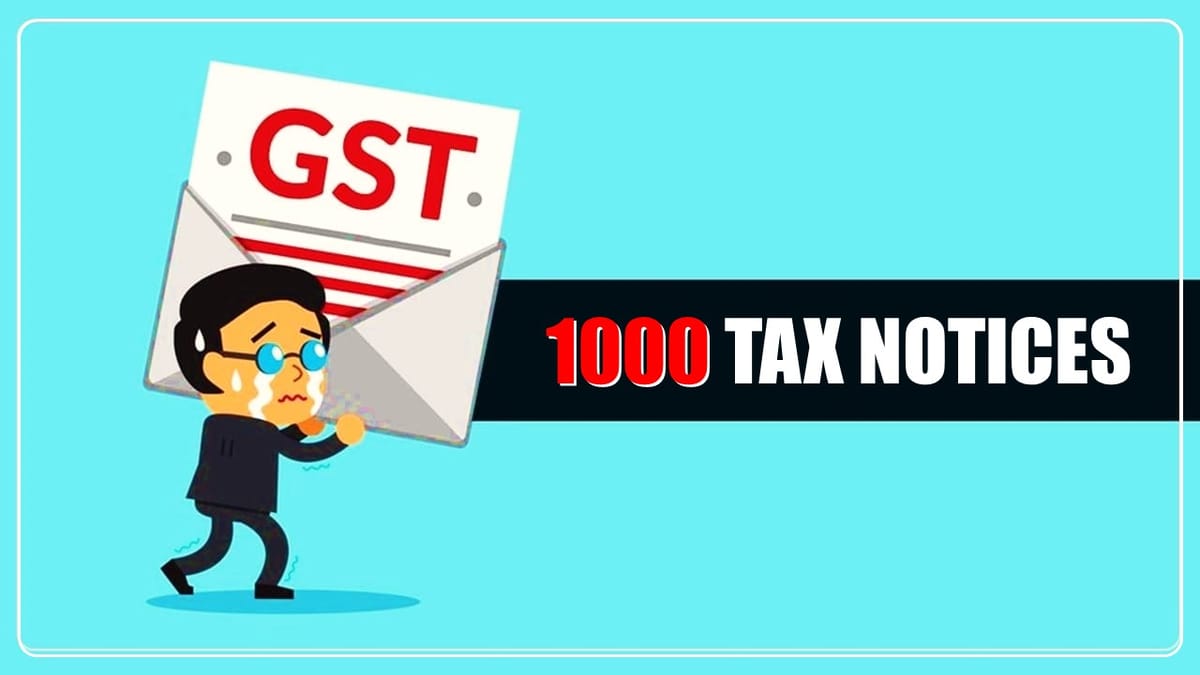DGGI issued over a thousand tax notices to businesses in the weeks running up to August 5, inquiring about alleged underpayment of taxes and improper use of tax credits in 2017-18,
Reetu | Aug 17, 2024 |

DGGI sends out over 1000 Tax Notice to Businesses ahead of August 5 Deadline
The Directorate General of GST Intelligence (DGGI) and its teams around the country issued over a thousand tax notices to businesses in the weeks running up to August 5, inquiring about alleged underpayment of taxes and improper use of tax credits in 2017-18, according to two individuals familiar with the case.
The notices were issued across industries and states as the extended statutory period for issuing notices for failure to pay taxes, fraudulent use of tax credits, intentional falsification, or suppression of facts ended on August 5, according to one of the people who spoke on the condition of anonymity.
The notices issued under Section 74 of the Central GST Act are the result of the investigating agency’s review of companies’ tax compliance, which in many cases included matching the sales data reported in the goods and services tax (GST) returns with that in the annual financial statements and analyzing information obtained from other parties in the supply chain.
The DGGI has been active in uncovering tax compliance failures, which complements the government’s attempts to broaden and deepen the revenue base. The numbers speak for themselves.
“Over the last few years, GST evasion of about Rs.5 trillion has been detected, and of this, Rs.1.2 trillion has been paid voluntarily by the assesses,” the first individual claimed.
According to the individual, a significant portion of the total tax evasion detected which is roughly Rs.1 trillion, is due to the use of fraudulent input tax credits. The value of taxable sales in these situations would be substantially larger than Rs.5 trillion because GST is levied solely as a proportion of the sale price.
The Central Board of Indirect Taxes and Customs (CBIC) said earlier this week that it would undertake a second drive against fake GST registrations to root out firms engaging in bogus tax credits.
Tax evasion is suspected in the distribution of both goods and services. “The services sector, by definition, is prone to tax fraud because end consumers frequently do not insist on an invoice. In the case of goods, the person stated that iron and steel, cigarette, cement, and metal scrap firms are prone to tax evasion.
The probe agency had previously investigated airlines, shipping businesses, asset management firms, and insurance.
An email sent to the DGGI on Tuesday requesting comments on the story went unanswered at the time of publication.
According to a tax professional, the surge in investigations and enquiries has forced businesses to retrieve data from their systems for previous periods, conduct substantial reconciliations, and re-evaluate earlier stances.
“All of these activities, in addition to being extremely time intensive, are also quite complicated considering the various changes in the GST legislation, especially during the first two years of GST and the paucity of precedents and case laws even after seven years of GST, “he said.
Tax experts recognized that a considerable number of letters were issued to enterprises in the first week of August under Section 74, which applies in cases of fraud and deliberate misrepresentation. This section may result in a greater penalty. They further stated that penalties had been levied on many promoters and directors of the companies included in these notices.
In many of these cases, the benefit has not been retained by the individuals, therefore any penalty imposed on them will be subject to the standard of being obviously arbitrary before the jurisdictional high court.
Increased economic formalization, the rise of digital payments, improved data capture of the movement of goods across the country, and stricter disclosure requirements, such as e-invoices for business-to-business transactions, have all helped the agency detect lapses in tax compliance.
An industry executive, speaking on the condition of anonymity, stated that large organizations, particularly publicly traded companies, would always endeavour to remain compliant, but huge tax demands based on differing interpretations of the law would invariably result in litigation. The exact amount of evasion found as part of the recent drive is not immediately available.
For 2017-18 sales, the deadline for enterprises to file yearly GST returns was February 5, 2020, and the investigating agency was required to send notices at least six months before the end of five years. As a result, notices were issued prior to August 5, and final orders are expected by February 5, 2025. For 2018-19 sales, the DGGI has until June 30, 2025 to give notices.
In case of any Doubt regarding Membership you can mail us at [email protected]
Join Studycafe's WhatsApp Group or Telegram Channel for Latest Updates on Government Job, Sarkari Naukri, Private Jobs, Income Tax, GST, Companies Act, Judgements and CA, CS, ICWA, and MUCH MORE!"